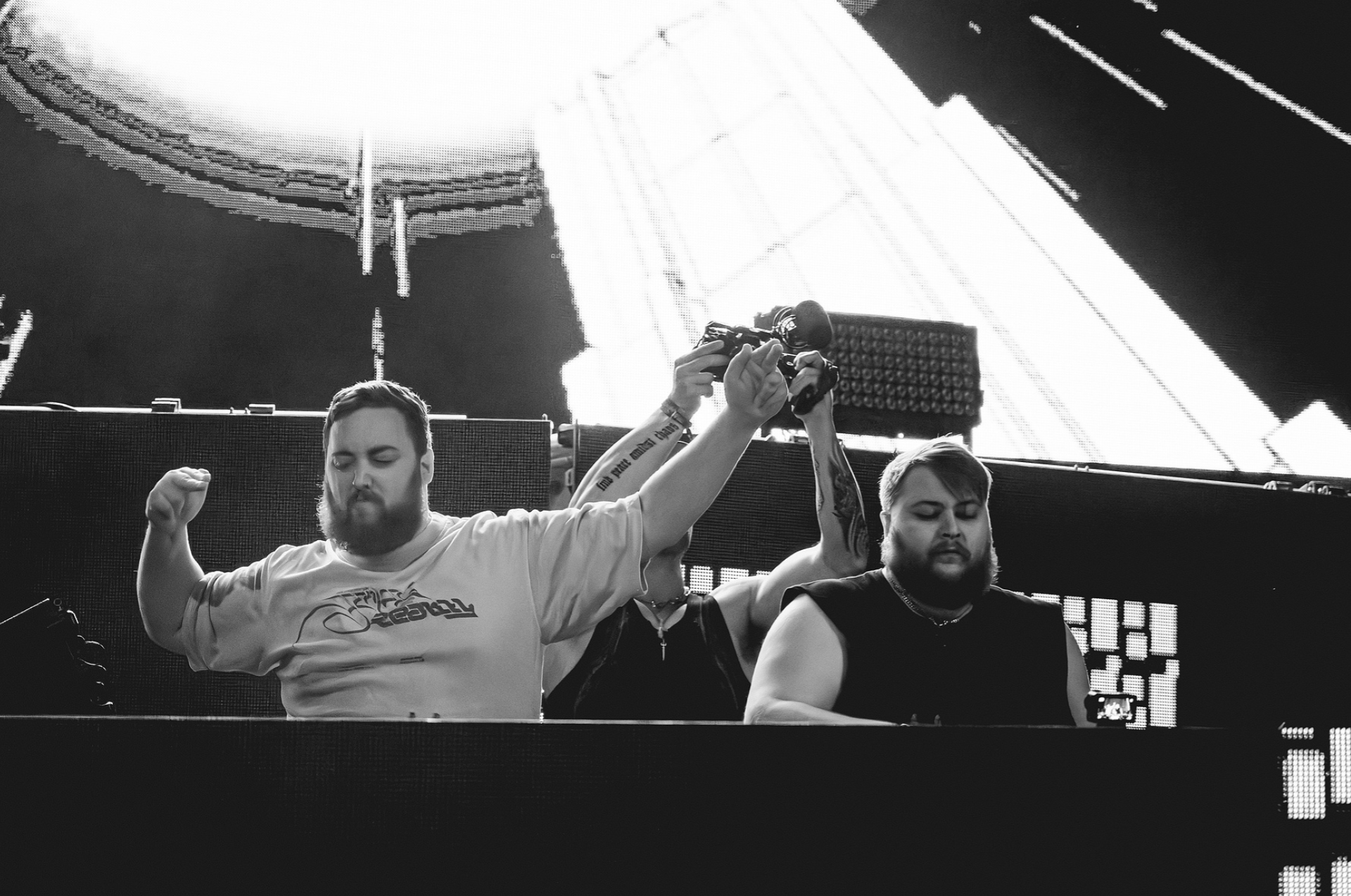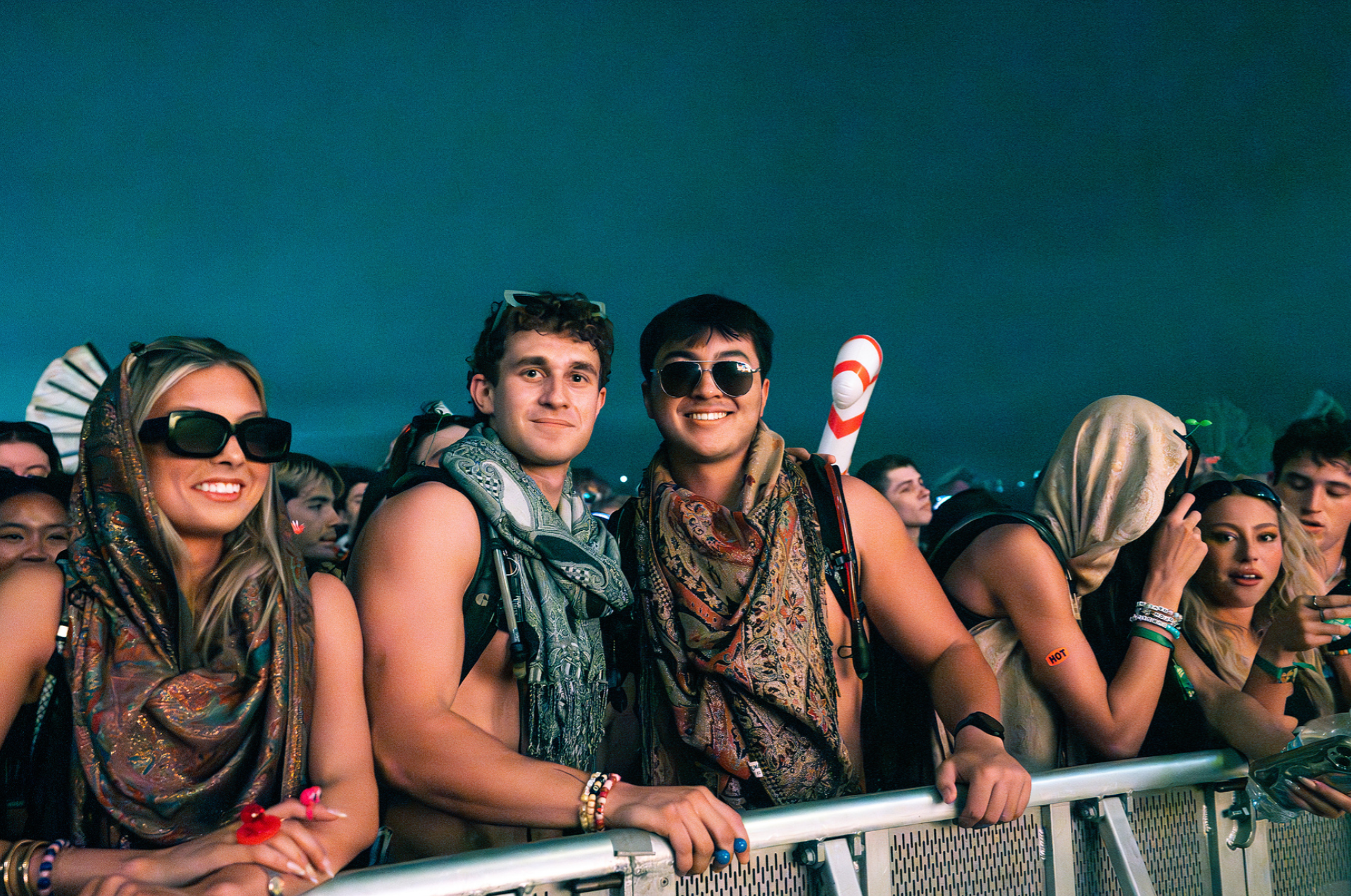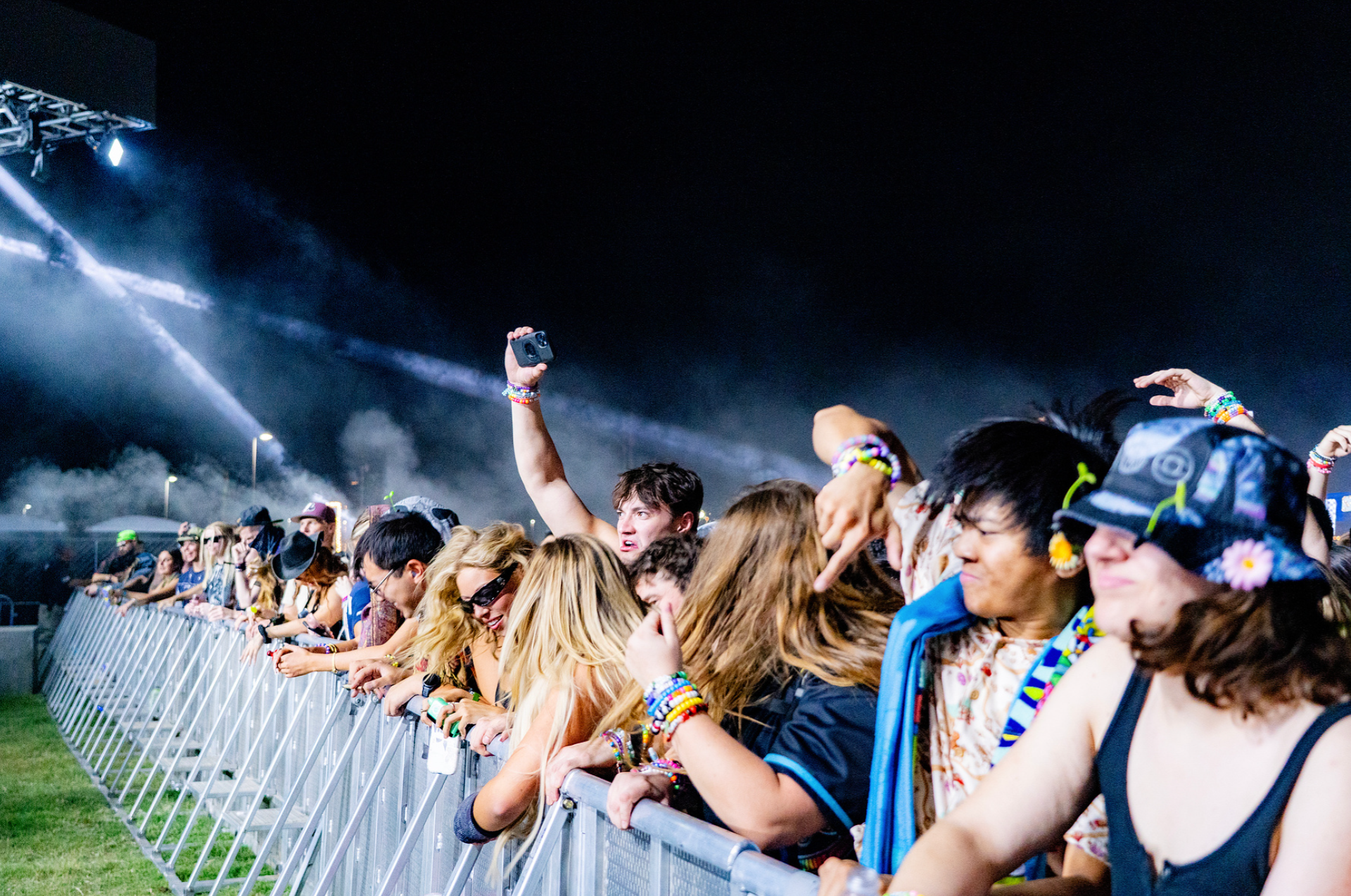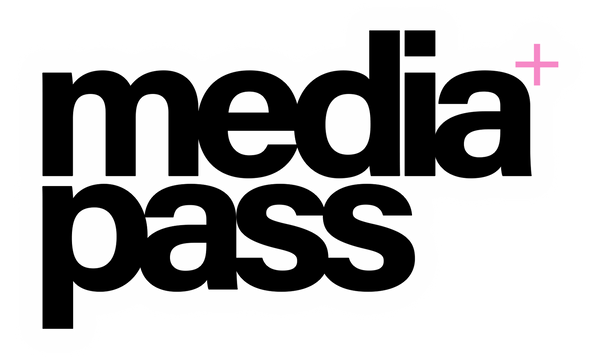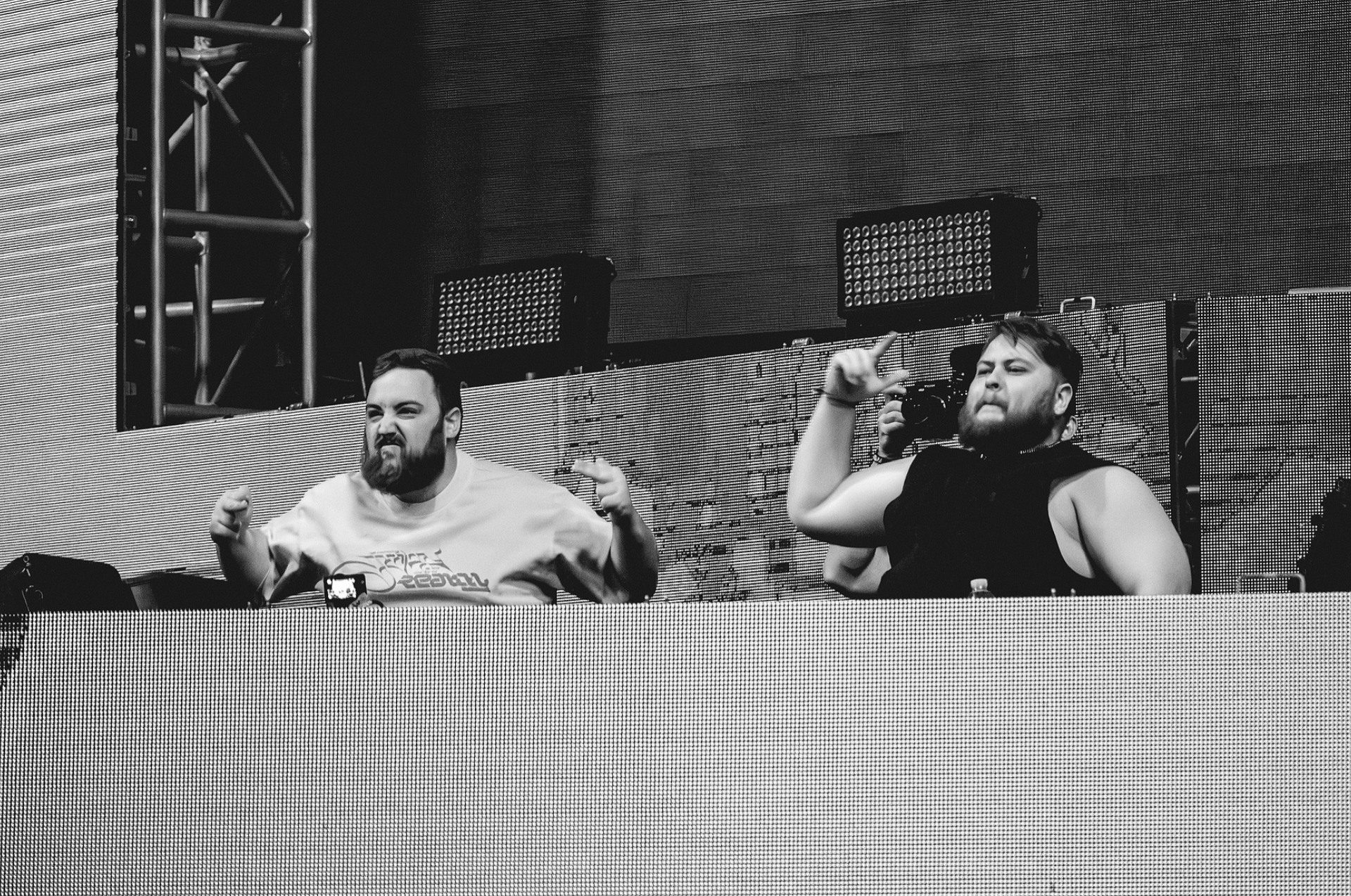
From Riddim to Orchestral: Mvrda on Evolution and Experimentation
September 11, 2025
Written and Photographed Alex Dehlavi @red_bot_
Few names carry the same weight in riddim as Mvrda. Widely recognized as one of the genre’s pioneers, he’s not only helped shape its foundation but continues to redefine how it evolves in today’s bass scene. From gritty underground beginnings to mainstage domination, Mvrda’s sound bridges raw aggression with precision design—cementing him as a driving force in dubstep’s growth on both sides of the Atlantic. In this conversation, we dive into his creative process, his passion for composing outside of dubstep, and where he sees riddim heading next.
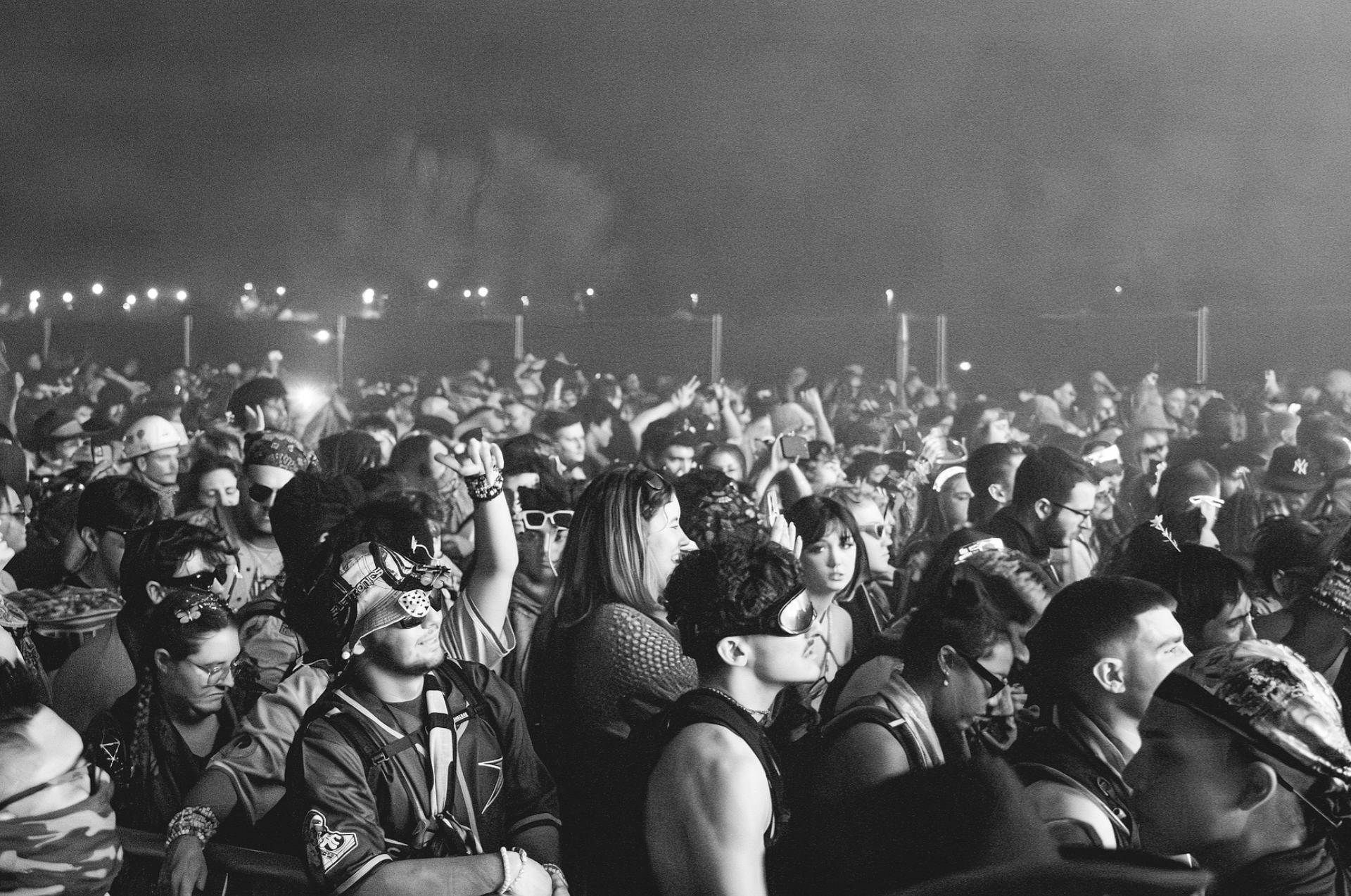
How does touring the US compare to touring the UK? Are there any surprises in the crowd?
I'd say there is definitely a big difference between Europe and the US because in Europe, there's not so much going on, especially in recent years. And America just definitely has more of a dubstep scene here. Not saying that Europe doesn't, but it's just more consistent shows here in America. And yeah, it's definitely a different type of community, I guess it's maybe over in America, it's a bit more about ‘plur’ and stuff.
And then in Europe, it's less of that, I guess. But either way, I love America. I think America does some really good shows.
Yeah. I see, European shows versus the US, it always feels like European shows, maybe there's like more unity, everyone might chant something together, a lot easier, but in the US it might be hard to get everyone to start chanting something together.
I think that in Europe, you've got some really, like, people that come to your shows are people that really, really do know you, you know. And I'm not saying America doesn't, but you know, there are a lot of people who come to these raves to party and things like that in America. So they might not know exactly your music and stuff. But, yeah, I guess that I do like that people know my music. So I do like how it is in Europe as well. For sure. Either or.
I mean, you're definitely becoming a lot more popular here in the US, and for sure, your music is starting to transcend its own genre. I mean, you were one of the original producers who kind of, like, pushed the riddim, genre in general. I mean, quite literally, you added a lot as far as pushing those boundaries.
Oh, appreciate that.
Yeah, of course. Especially since now you see a lot of bigger DJs taking on that main stage. “Alright. I'm gonna start chopping up some riddim”, you know?
For sure. It's really cool to see. Yeah. Right. I love it because, you know, riddim has always been quite underground, especially a few years ago.
But the past few years, you know, it's really kind of kicking on the main stage and everyone's loving the chop riddim and yeah. It's just really cool to see for sure.
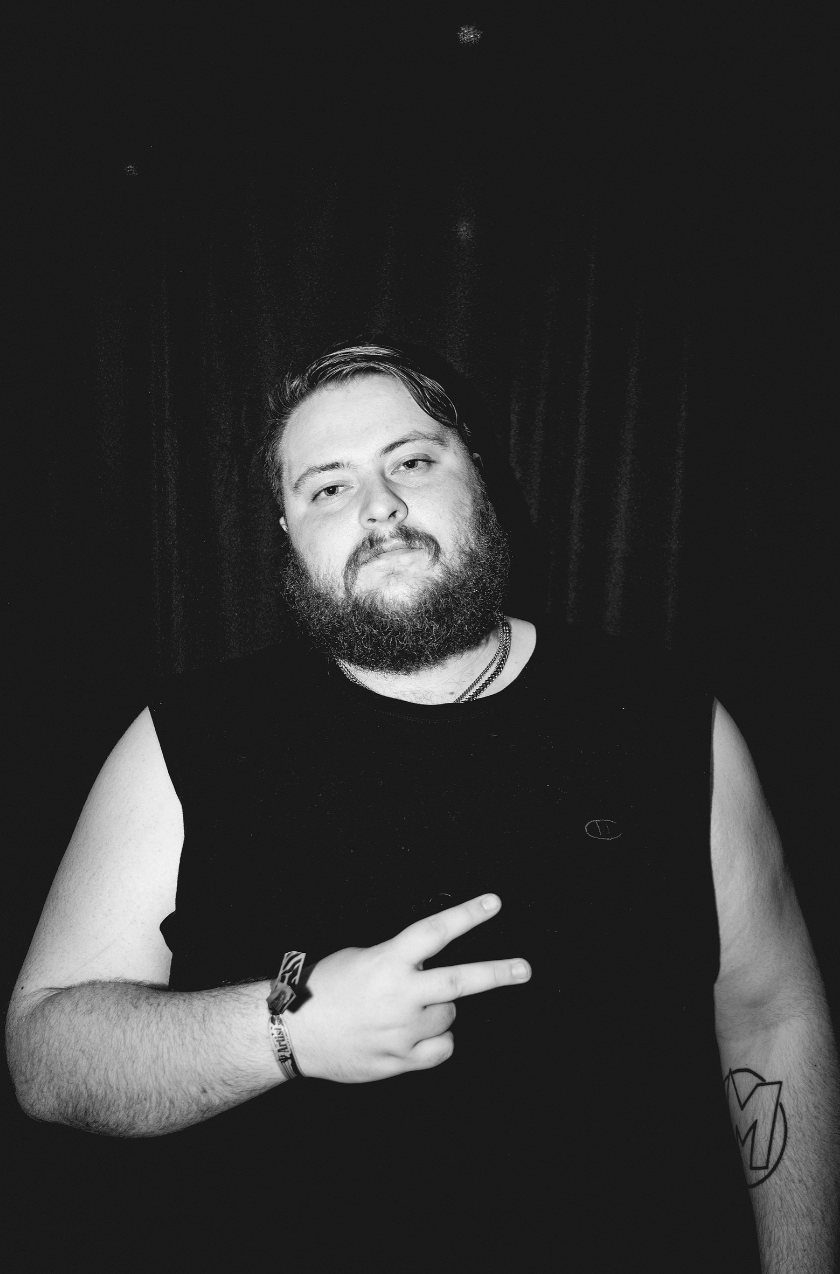
What drew you to riddim or those riddim elements over other styles of dubstep?
I think I've always been into like aggressive music and aggressive dubstep obviously. I was inspired by someone called X Core. It's an old name, back in the day, and he inspired me to make music. But I think there is, you know, a lot of elements in his music that kind of transcend into today's kind of sound as well. And riddim is just something that I've grown to love over the years as well.
So, yeah. Riddim has always been a really good genre to kind of try out and just fun to make, you know. Right. Yeah.
For sure. You know, realistically, you've got like two or three noises and you can make something sound really cool.
For sure. Yeah. Exactly. It's quite a simple genre if you think about it like a sub-genre, if you will. But it's, you know, it pops on stage, you know.
Do you feel like riddim has a ceiling because of its simplicity, or do you think there's still a lot of evolution to come to the genre?
I think it really depends on the artists and how they move the scene, you know. There are a lot of people who are kind of sticking to the same sound, but there are also a lot of producers that are making some absurdly insane riddim that is pushing the boundaries, you know. And I'm constantly seeing evolution. So I think riddim there is definitely space for evolution. 100%, you know.
I think dubstep as a whole is constantly changing. From when I started to now, it's just a lot different, you know. So it's really cool to see that it's a genre that you can really just push.
Having witnessed that growth of riddim. What advice would you give to emerging riddim artists who are starting to make their own mark in this era?
Yeah. Advice. I would say because riddim is, you know, there is a lot that is quite samey. I would say really try to push the boundaries in sound design. Try to do something different.
I mean, it's a very simple kind of flow as well, which is catchy and everyone likes. But I think pushing into a different type of flows and a different type of sound design, I think it might push the interest of more people as well. So I'd say, yeah. Just be inspired by what you listen to, but really try to change it up too.
When you work on your own production, what do you focus on the most? Is it the sound design, or do you start focusing more on what vibe you’re going for, or what energy you want to put into it?
Personally, I do like focusing a lot more on the sound design because that's the character of riddim, mostly, you know. It's that sound design there, the way it flows. So I always try to get at least like an eight-bar loop of something and perfect that before doing other elements of the tracks. And then I start thinking about doing like, what's gonna make this memorable? Give it a theme, you know, try and put a theme in the intro and things like things that I'm starting to think more on.
How do you know or feel when a track is ready? Where's the line of where you might scrap something versus if it's ready for the stage, or to keep working on it for a while?
Yeah. Well, the problem is with me; I'm a perfectionist. So there's never a track that's always ready. I always have to just tell myself, Mhmm. Need to stop here, you know?
But when I feel like, you know, the track speaks for itself, it's, you know, I test it out at shows, and if it gets like you know, a good reaction from crowds, I kinda know that that's what they like. Yeah. And I can make that into something and complete it.
It really just depends on the track that I'm writing. But yeah, it's hard to say when to stop. I'm a perfectionist, so it really is hard.
I feel the same way. I mean, I do videos, so I'm like, yeah. It has to be perfect. It's not, it's not so much like, it needs to be perfect for other people. I need it to be perfect personally.
Absolutely, it's just always my opinion, like I don't care what anyone else says. Yeah. It has to be perfect.
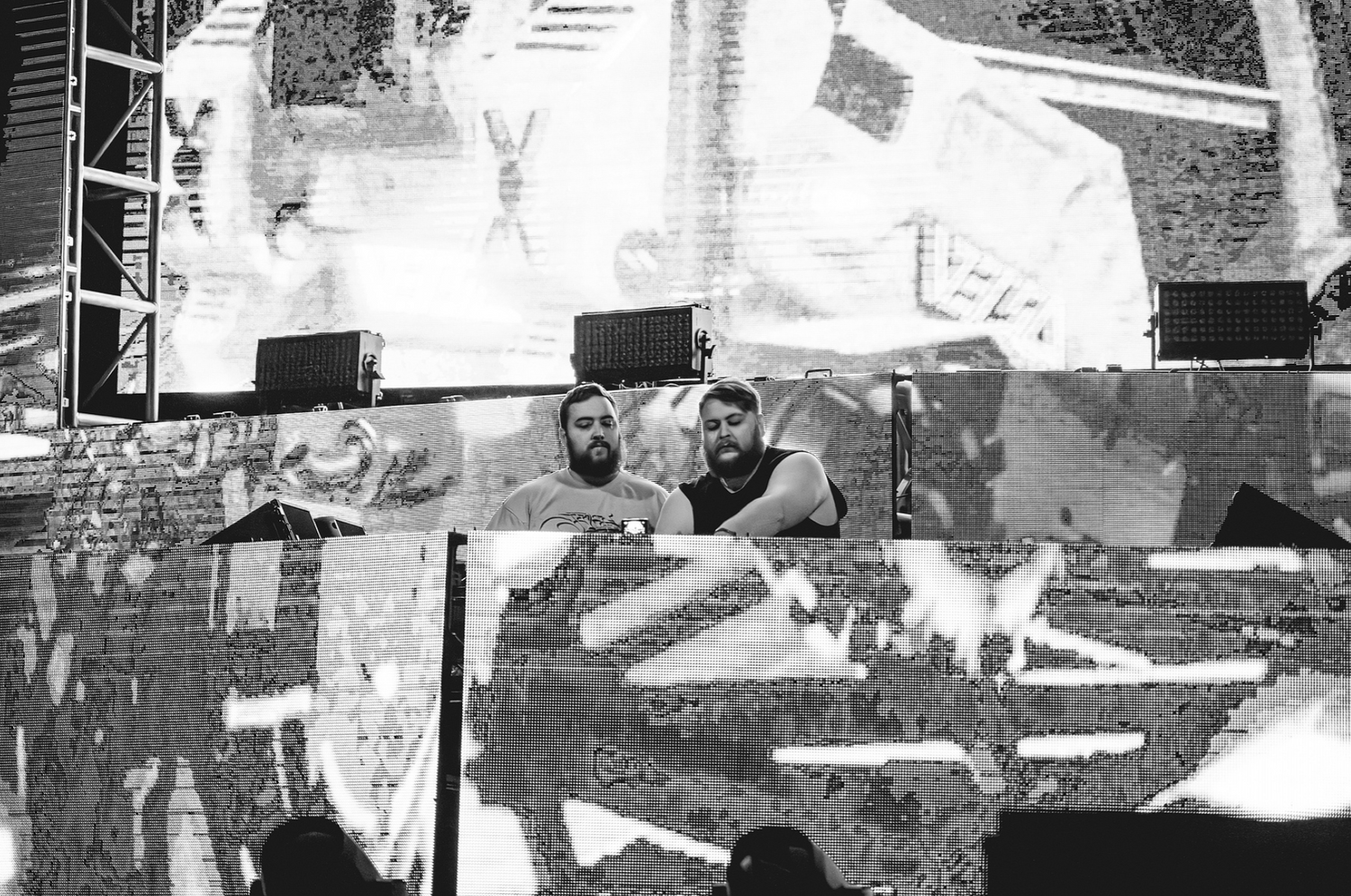
When you're designing your sets, do you feel like you'll design them with the thought of, “oh this is EDC, it's gonna be a big crowd, I have to design it around high energy, or is it you just go into it and you're like, I wanna tell a story with my set, or I want to take everyone on a journey through maybe a certain energy.
Yeah. Right now, I feel like I'm kind of just designing it in a way that I know these tracks work live. But obviously, I try to, you know, play tracks that are not always what people expect as well. I try to because I make a lot of other stuff too. So I'm trying to kind of incorporate that.
Eventually, I do want to start branding myself in a way that allows me to tell a story with my set; people like Void inspire me, for example. He's a big inspiration to pretty much everyone. Sisto is doing a really good job at that. I mean, Rez. Yeah.
There are lots of artists who really just have a really good kind of story to tell. Yeah. I know I feel like I do have a story. I just wanna do it the right way. Yeah.
So I haven't done it yet, but I'm going to. That's the plan anyway.
When you think about collaborating with artists, more production-wise, like when you worked with Subtronics and, of course, Versa now, you just dropped us an ID. What makes that collab click for you? Is there a certain way that you like to go about collaborating on a production?
Feel like a lot of the collabs that I've done so far they've all been done kind of differently. I don't really go about it a certain way. Sometimes it's more like the other artists host the track a bit more than the other, if that makes sense. So all collabs are a little bit different.
Like Subtronics, he kind of definitely mapped out the track and things. You know I sent him sounds to work with. I made arrangements, but he kind of did it himself. It really just depends on the artist I work with.
And I try to match, you know, like if I feel like they're happy to kind of go hard on the project, then I'll do like little bits. But I'm also happy to do the same, you know, like I would go hard on the project, and they'll send me bits to work on.
It doesn't really matter how it is.
That's really nice of you, too, to not overcomplicate things either. I guess by the end of the day, when you're thinking about collaborating on a track, they're either gonna be like, This is my idea or here's some sounds, start working on these sounds.
Yeah, for sure. Absolutely.
What initially influenced you to get into the EDM industry?
Well, as I said before, there was an artist that I listened to called X-Core, and he didn't like influence me to join this scene. It was more like I loved dubstep. He really just dragged me into the dubstep world. And I just wanted to try making it. And then I think ever since I started, I'm kinda growing my project.
It's just natural that you're now in the scene, and it's become like ever since I started to now, the scene has just grown a lot, and it's become a big community of people. So I think I've just naturally put myself in the scene if that makes sense. And I love it and it's great. Like, I love that Dubstep has grown to a point where we have this scene of people who love the same music.
I wouldn't say I was influenced to join it. It just happened. If that makes sense. You Know?
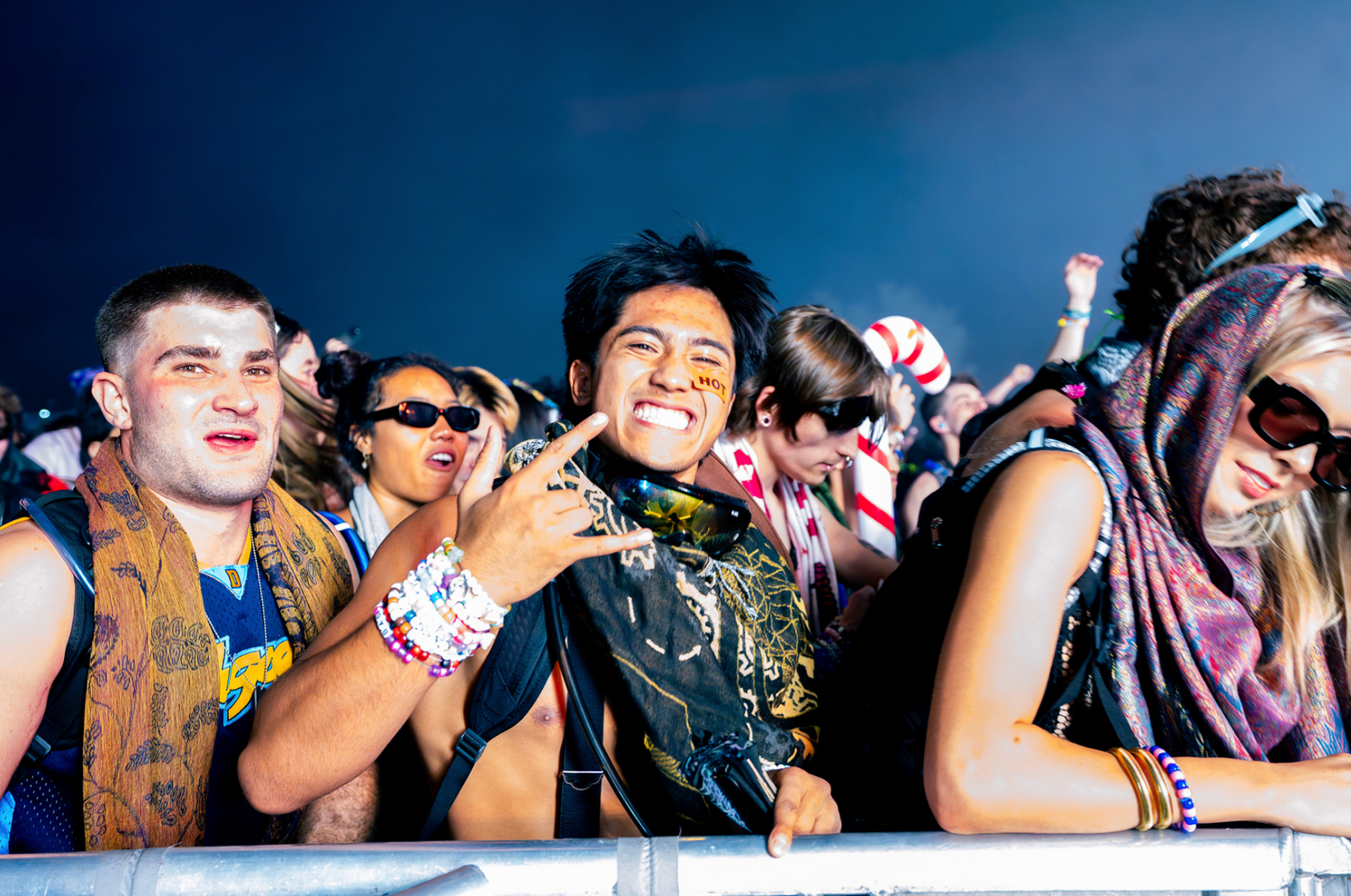
Outside of music, are there any other creative influences that you have, producing? Like, maybe movies or film or writing or drawing?
Yeah. Yeah. Absolutely. Video game music, I guess video games in general. I think my end project, like an endgame for me, would be making music for games.
I love how games incorporate their music and how they emphasize the whole game just with the soundtracks that they have. And also movies as well. I mean, without music and movies, it's, you know, it's nothing like Yeah. It's a big part of it.
So that's what I think my end game is, definitely like kind of making stuff for games and film, like I love making like orchestral stuff on the side. I don't really put it out, but like I make a lot of IDM orchestral, just really filthy type music that could fit maybe in a game.
I don't know if I'm there yet. But I'd say, yeah, that like games, movies, a 100% they influenced me to make, I guess, dubstep too, because I can try and like match the energy. And try to fit it, maybe in a game. I don't know.
No. No. There's a lot of legacy to be with that. You know? There are so many amazing IPs out there that the first thing you think of is the song. Star Wars, you think of all the music in it. Harry Potter, you know, immediately comes to your head.
Jurassic Park?
Yeah. Exactly. I mean, even video games like Halo, you know, there are so many tracks that they become a legacy. Mario, there, there's so much music in this medium that transcends all genres and time altogether.
Absolutely. And that's what inspires me 100%, is seeing how these games just become such a big thing just because of the music, you know?
Yeah, for sure. I look forward to seeing more of what you do outside of EDM. That being said , looking ahead, what do you want people to say about Murda five years from now as both an artist and a character?
I'm still trying to figure out who my identity is. I’m MVRDA, but I'm also trying to think what the project is. So I'd like to say that, you know, I've come with, like, quality music, and people can recognize that. I'm doing my best, and I hope people see that. You know, I can be quite a unique producer. I'm not trying to, you know, be the same as everyone else. I want to try and get my own kind of sound and have something that's recognizable for me. So I really would really love, hopefully five years down the line, people can recognize that. That would be really cool.
Absolutely - I can tell you’re really focused on shaping your own sound— I’m excited to see where you’ll take it. Is there anything that you want to share with our audience and your audience? Maybe an upcoming ID or an EP or just a new tour announcement in general?
For sure. Yeah. So I have an EP scheduled. It should be hopefully coming out by the end of the year. And it's got one of the tracks that I guess Funtcase and a few other artists are playing out. It's kind of doing well with that, so I'm hoping that will be good. And then after that, I'm gonna try and drop a lot of singles and stuff, but tours are still up in the air. We're trying to figure out some tours with, like, some other artists and stuff, but that's all in the works. I'm still figuring it out, so not much to say, but there's stuff in the works.
That sounds awesome—can’t wait to hear the EP, there's a lot of exciting stuff to look forward to soon!
Absolutely.
Thank you so much.
No, thank you for having me on the interview. Really fun. Absolutely.
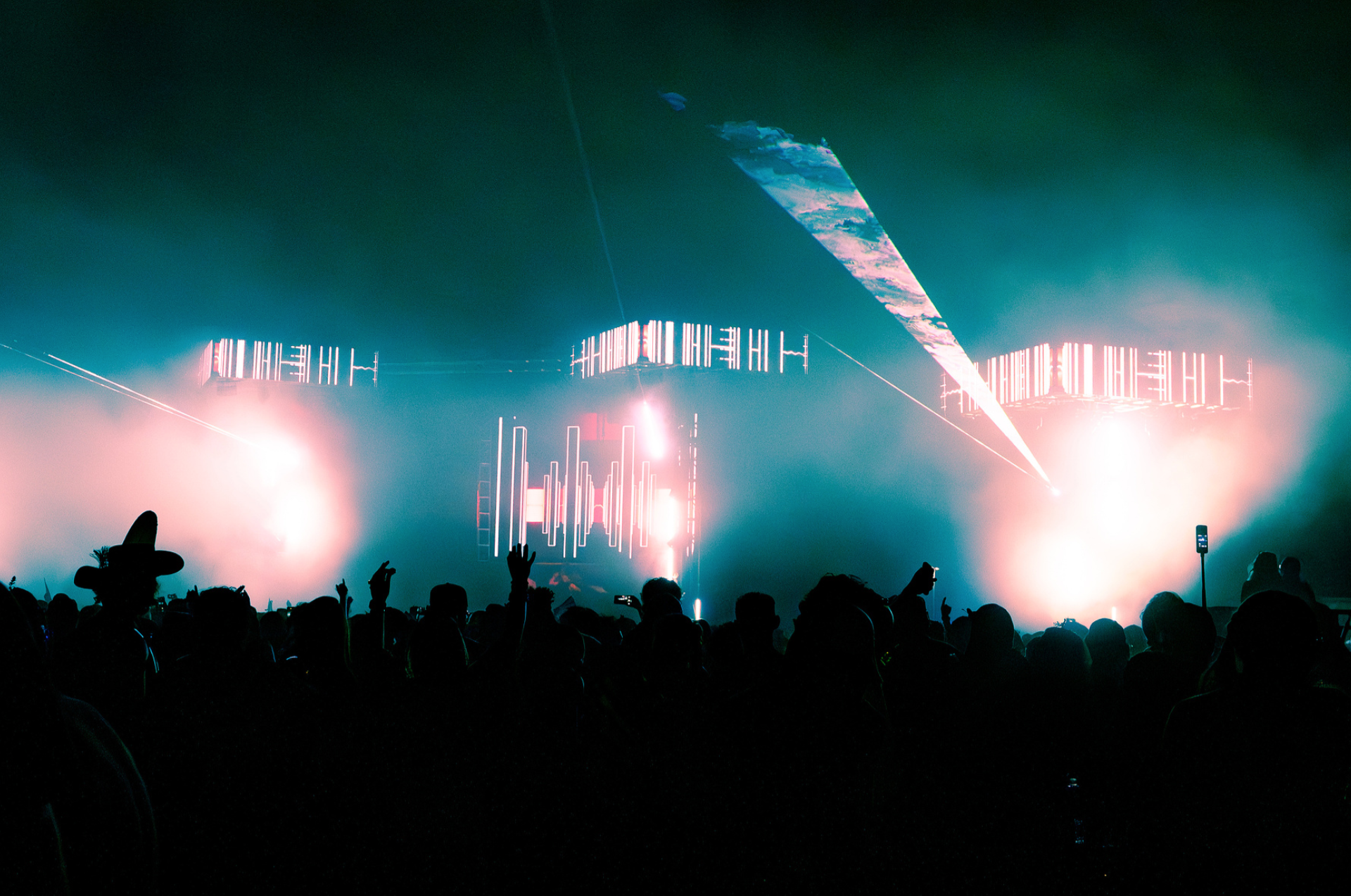
Mvrda’s B2B set with Versa was as energetic as it was unforgettable. With a relentless drive to innovate and a dedication to crafting a sound that stands out, his artistry is impossible to ignore. His path mirrors riddim itself—raw at the core, yet constantly evolving. From early inspiration in X-Core to collaborations with Subtronics and Versa, he continues to push sound design forward while shaping a style that’s unmistakably his own. With ambitions to bring storytelling into his sets and a passion for music that spans orchestral and video game compositions, his influence clearly reaches far beyond riddim. For fans and emerging producers alike, his journey is a reminder that true artistry comes from evolution, authenticity, and the courage to chart your own path.
Thank you to MVRDA, management, and Relentless Beats for their time and for a very fun interview.
